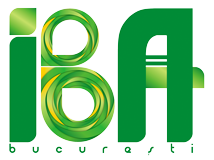A comprehensive study conducted by a consortium of Romanian institutions highlights the severe consequences of the unprecedented drought and heatwaves that struck Romania in the summer of 2024 on the microbiological and mycotoxicological quality of wheat (Triticum aestivum) stored until April 2025, as well as on the quality of wholemeal flour and bread produced from it.
The research was carried out by specialists from our institute, the National Research & Development Institute for Food Bioresources – IBA Bucharest, in collaboration with the Faculty of Agriculture of the University of Agronomical Sciences and Veterinary Medicine of Bucharest (USAMV Bucharest), SC Șapte Spice SA, the Faculty of Agricultural Sciences, Food Industry and Environmental Protection of Lucian Blaga University of Sibiu, and the National Meteorological Administration (METEO-Romania).
The results show that extreme temperatures and the lack of precipitation significantly influenced the levels of microbial and mycotoxin contamination in both freshly harvested and stored wheat, as well as in the derived products. The main cause: reduced moisture content and water activity, which alter the microbial environment and the conditions for fungal development.
Although total fungal counts, the number of Fusarium-damaged kernels, and the levels of deoxynivalenol, aflatoxin B1, and ochratoxin A remained below the limits set by European regulations, the study indicates higher contamination levels in Transylvania and Moldavia – particularly in the Curvature Carpathians region. Researchers explain this phenomenon by the presence of cooler and more humid microclimates, which favor fungal growth.
Changes in wheat quality were directly reflected in the physico-chemical, rheological, and colorimetric properties of flour and bread, factors with significant economic implications for the milling and baking industry.
The authors warn that the intensification of extreme climate events in Southeastern Europe will continue to affect agricultural production and recommend the implementation of integrated regional strategies. These should aim to enhance the resilience of wheat crops, optimize production systems, and improve contamination control — essential measures to safeguard food safety and the economic competitiveness of Romania’s agri-food sector.
Read the full article here.

